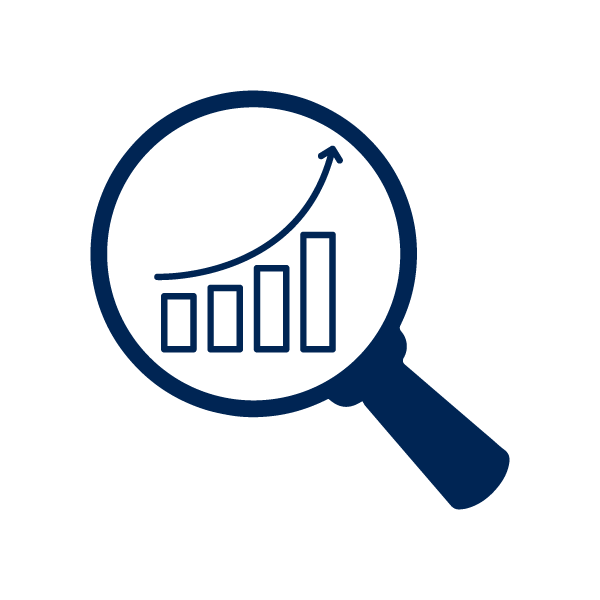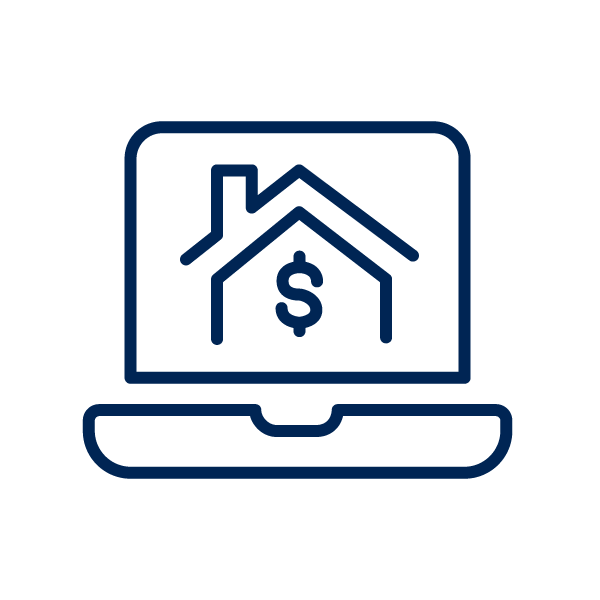
When it comes to mortgages, one of the most talked about topics is rates — and for good reason. Your mortgage rate will play a huge role in the amount of interest you end up paying over the life of your mortgage. But with adjustable and fixed rate options, how do you know what’s right for you? In this article, we’ll break down exactly what a fixed rate and adjustable rate are and different things to consider when choosing one for your mortgage.
Before we get into fixed rates and adjustable rates, let’s talk about mortgage payments in general.
How Mortgage Payments Work
Mortgage payments are made up of 2 parts: principal and interest.
Principal: The amount of money borrowed to purchase a home.
Interest: The cost of borrowing money from a lender.
With each payment you make on your mortgage, a portion will go towards paying off the principal, and a portion will go towards the interest on your mortgage loan.
What is a Fixed Rate?
With a fixed rate, your mortgage rate will stay the same for the entire mortgage term. For example, if you lock in a rate of 4% for a five-year term, you know for sure that your rate will be the same for the entire five years. That also means consistent mortgage payments for five years.
In Canada, fixed rate mortgages are the most popular.1 In 2024, 69% of consumers opted for a fixed rate mortgage. An increase from 66% in 2023.
Benefits of a Fixed Rate
- Budget with ease: Consistent payments over your mortgage term will make it easier to budget and plan your finances
- Simple calculation: There’s just one rate you need to think about when it comes to your mortgage, so it’s easy to understand and keep up
- Protected from rate increases: If there are changes in the market and rates happen to go up, a fixed rate mortgage will stay the same
More to Consider with a Fixed Rate
Consistency and predictability are the core advantages of a fixed rate mortgage, which is why it’s such a popular choice for Canadians. Historically, fixed rates are typically higher than adjustable rates. It’s also important to note that if rates do happen to go down during your mortgage term while you have a fixed rate, you won’t be able to take advantage of the lower rate unless you break your mortgage, which will come with penalty fees.
What is an Adjustable Rate?
An adjustable-rate mortgage (ARM) is a mortgage with a variable rate that can change at different points of the mortgage term. The variable rate will change based on the prime rate set by the mortgage lender, which is influenced by the Bank of Canada’s overnight rate and other economic factors.
Here are some details about what makes up an adjustable rate.
- Lender Prime Rate: This is an index, or benchmark, interest rate set by the lender. This is the part of the adjustable rate that will change based on different factors.
- Loan Margin: This is a set percentage established when you sign your loan agreement that will be used to calculate your individual loan rate. Depending on current market conditions, it may be plus (+) or minus (-).
For example, if a homeowner receives an adjustable mortgage rate of Prime - 0.75% and the lender’s prime rate is currently 5%, the homeowner’s mortgage rate will be 4.25%.
Benefits of an Adjustable Rate
- Potential savings: When the lender prime rate goes down, adjustable rates will be lowered as well, allowing you to save on your mortgage payments.
- Lower penalties: ARMs typically have lower discharge penalties if you need to break your mortgage early.
- Flexibility: Switching to a fixed rate is an option if you no longer want an ARM.
More to Consider with an Adjustable Rate
Flexibility and potential interest savings are key highlights associated with ARMs, but it’s important to consider the other possibilities if rates were to go up rather than down. With an increase to the prime rate, adjustable mortgage rates and payments would go up too, which could impact your budget and other financial goals.
Deciding Between an Adjustable Rate and a Fixed Rate
Now that you know the differences and benefits of each rate type, how can you determine which one is right for you? Here are some areas to consider as you make your decision.
|
Your Financial Position |
Your Personality |
|
Market Outlook |
Your Housing Outlook |
We’re Here to Help
We hope this information about the adjustable rate and fixed rate mortgages helped shed some light on the topic of mortgage rates for you. Whether you’ve made your decision and need help with the next steps or would like some more info on which type of mortgage is right for you, our Mortgage Brokers are here to help. Use our Find a Mortgage Broker tool to find a knowledgeable broker in your area today!
1 The State of Homebuying in Canada: 2024 CMHC Mortgage Consumer Survey



